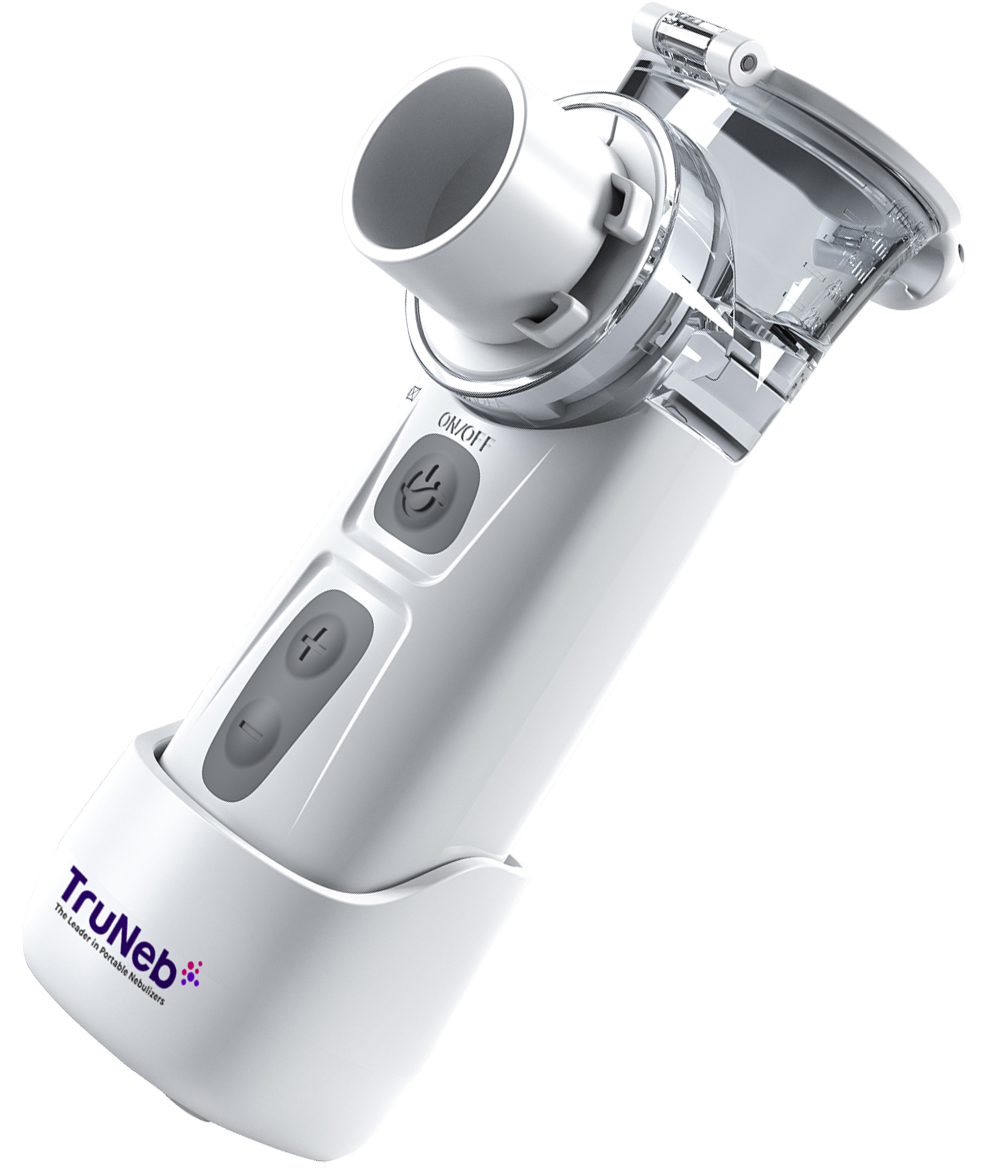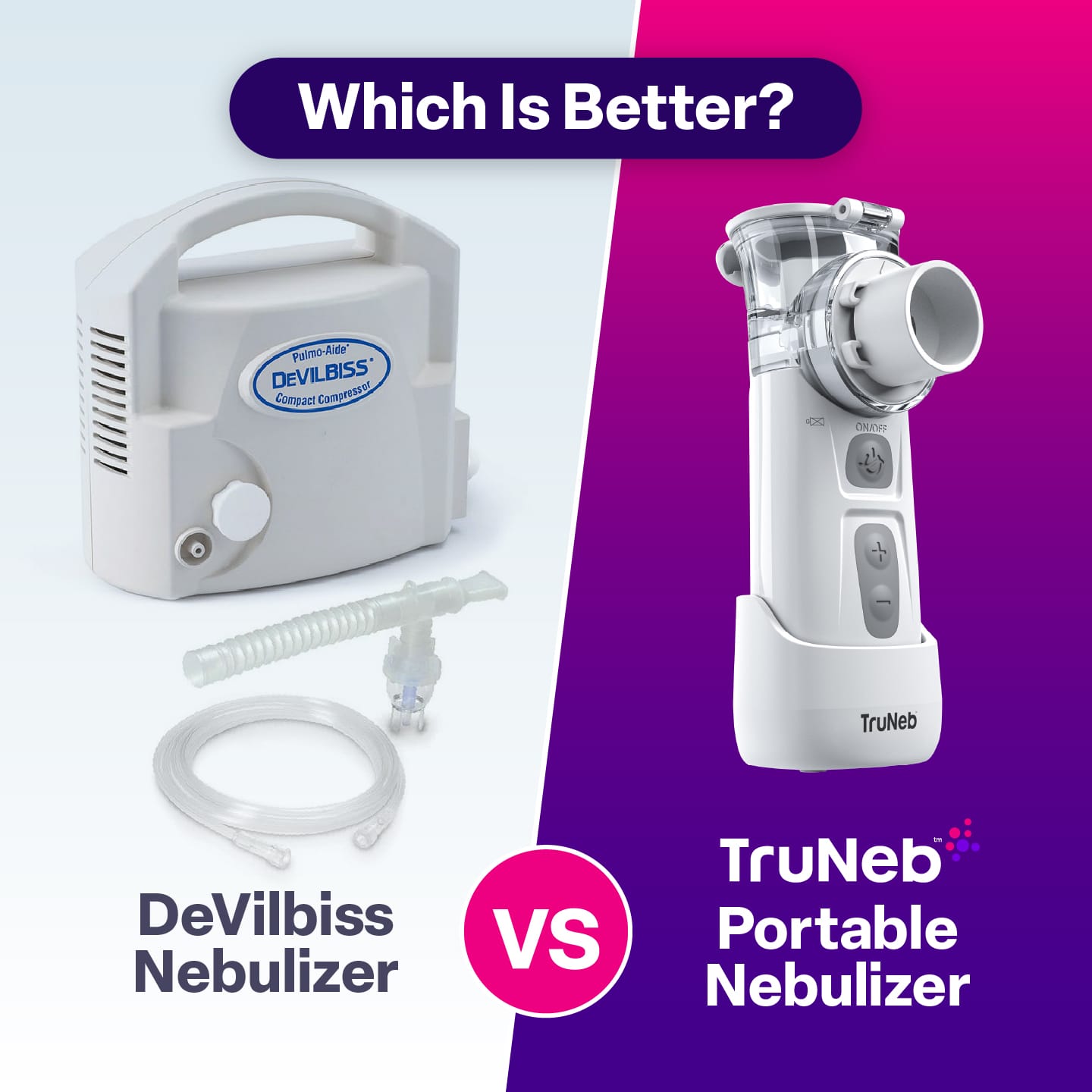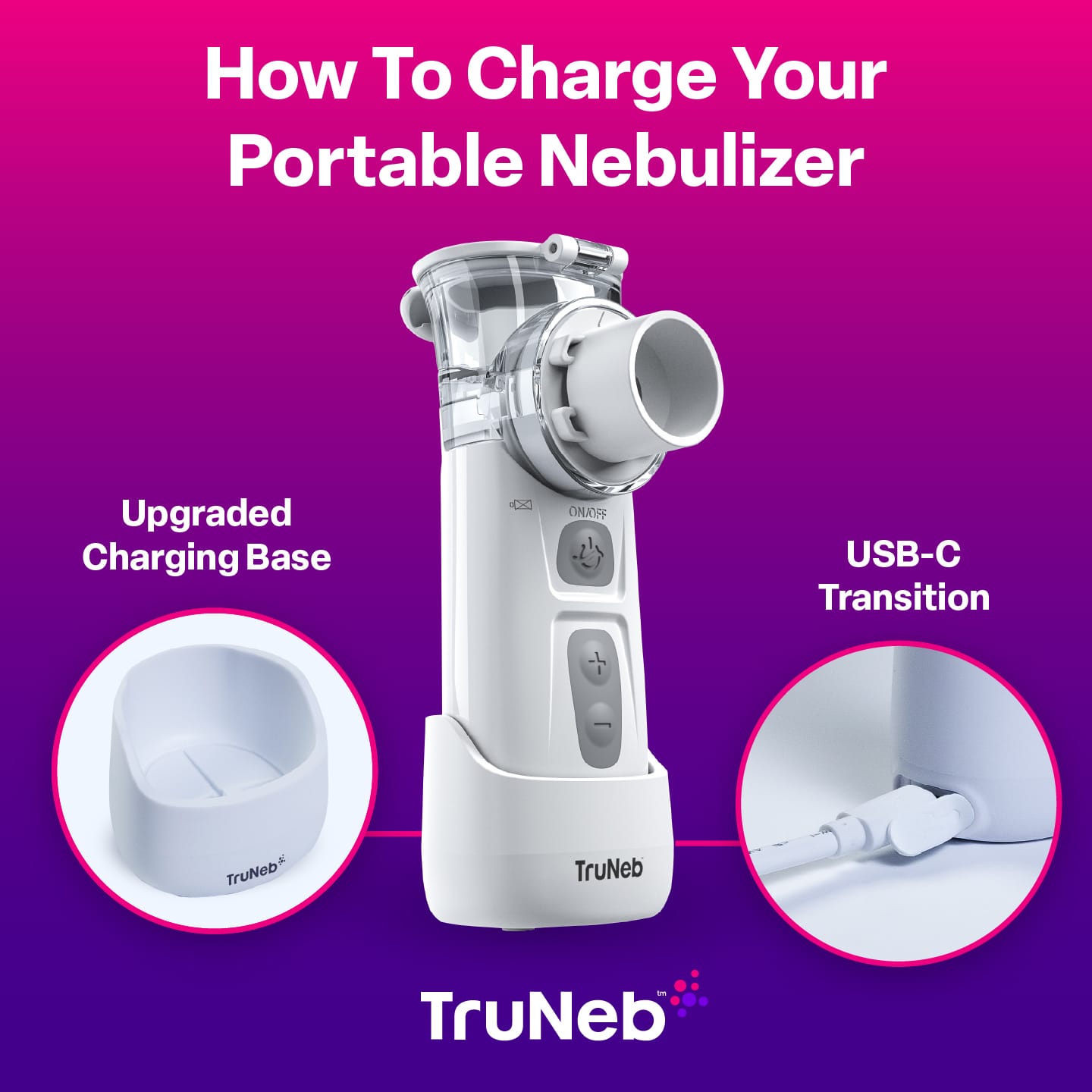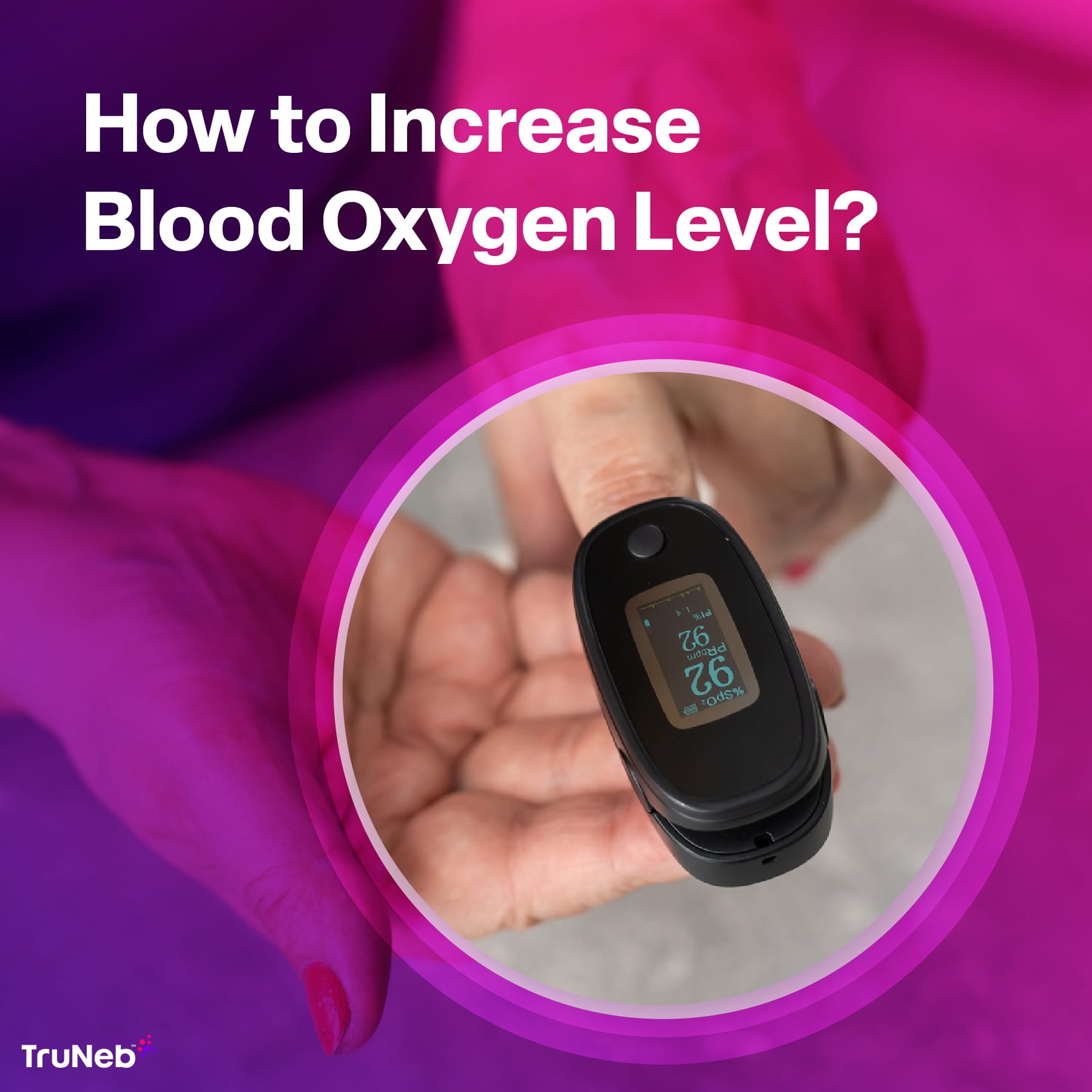On this page
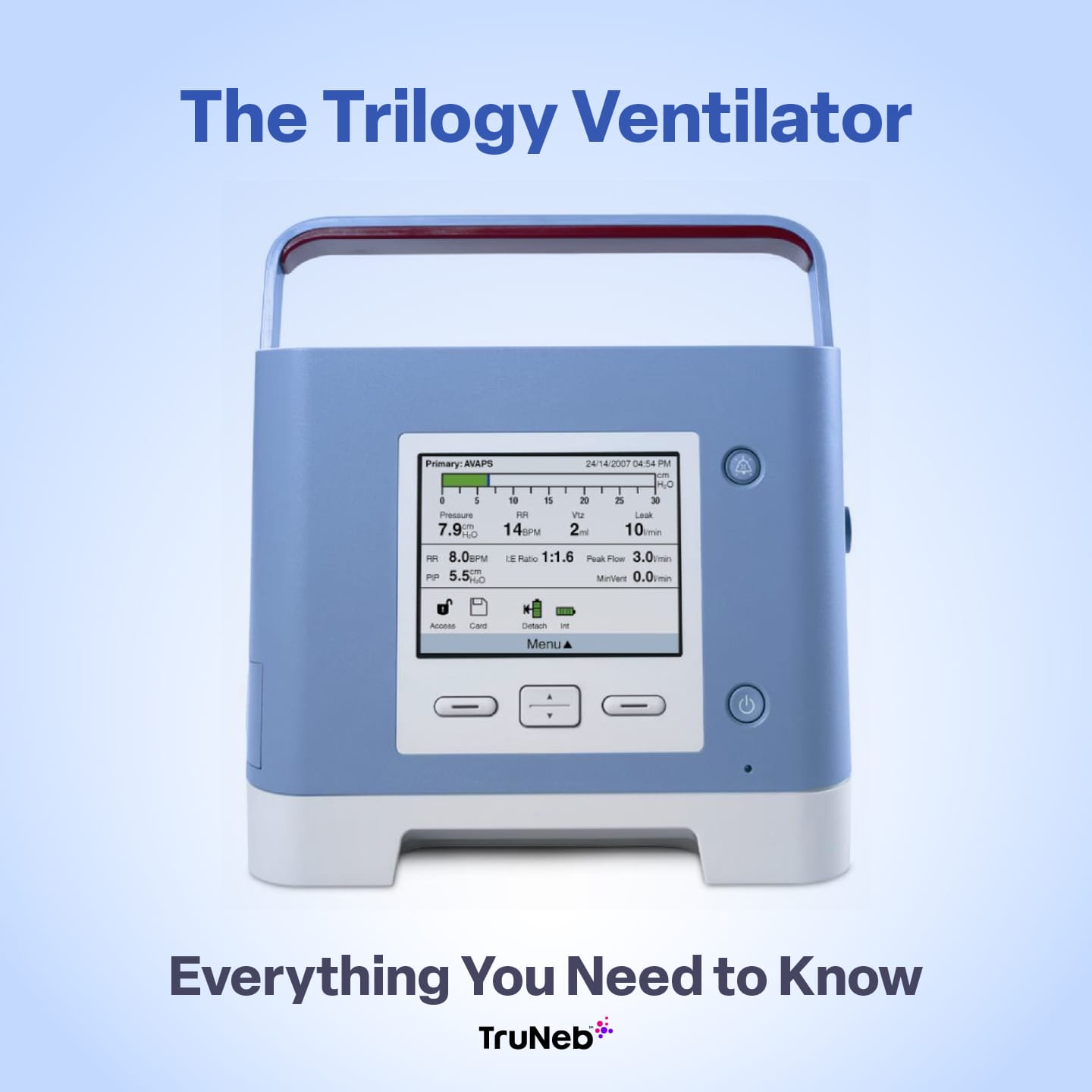
Trilogy ventilators are the gold standard when it comes to having a portable ventilator for home. There are multiple versions of the Trilogy Ventilator, and they are manufactured by Philips Respironics – one of the world’s leading medical companies. If you’re here to learn more about a Trilogy Ventilator, you’re in the right place. This resource will dive into the different Trilogy home ventilator models available and their unique capabilities.
Why Would Someone Need a Trilogy Ventilator?
A lot of people might think of ventilators as a piece of equipment used only in a hospital, but they are actually widely used at home. There are a range of conditions that require extra ventilatory support. Here are some examples:
1. Severe COPD: A person with advanced chronic obstructive pulmonary disease may require a home ventilator to support their breathing, especially during sleep or periods of exacerbation.
2. Neuromuscular disorders (e.g., ALS, muscular dystrophy): As these conditions progress, individuals may experience weakened respiratory muscles which may lead to the use of a ventilator for breathing assistance.
3. Spinal cord injuries: People with serious spinal cord injuries may need a ventilator to compensate for paralyzed respiratory muscles, allowing them to breathe more effectively.
4. Sleep apnea: In severe cases of sleep apnea, a home ventilator (often referred to as a BiPAP machine) can be used to maintain proper breathing and oxygen levels during sleep.
5. Obesity hypoventilation syndrome: Individuals with this condition may require a home ventilator to support their breathing, particularly during sleep, due to the combined effects of obesity and hypoventilation.
6. Tracheostomy: A person with a long-term tracheostomy and additional respiratory disease may need the support of a ventilator in order to breathe.
Is Trilogy a Vent or BiPAP?
Trilogy ventilators can act as both. Invasive modes like assist control and SIMV are available for people that need full ventilatory support. This is commonly known as “life support” – although it simply means that full breathing support is needed for people that can’t adequately breathe on their own (for example, people with neuromuscular diseases). Ventilators effectively provide oxygen and remove carbon dioxide from the body by replacing independent respiration.
Non-invasive modes like CPAP and AVAPS can be selected for patients that only need intermittent support.
Trilogy Home Ventilator Models
Here are the most recent home ventilator models from Philips Respironics:
Trilogy Evo Ventilator
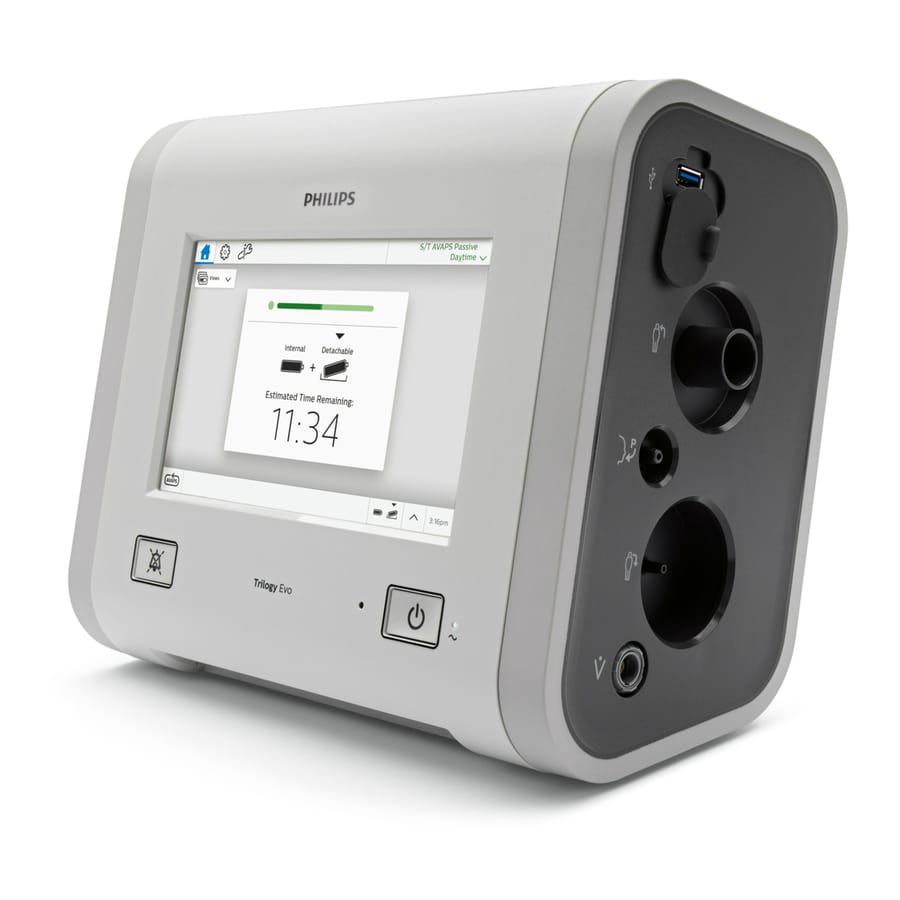
The Philips Trilogy Evo is a portable vent designed to provide both invasive and non-invasive ventilation support for a wide range of patients. With its advanced features, user-friendly interface, and adaptability to various types of care settings, patients get the support they need at home.
Top features of the Trilogy Evo Ventilator:
- 10 ventilation modes, including pressure control, volume control, and advanced modes like AVAPS-AE and mouthpiece ventilation
- 15-hour battery life with an external battery, enabling extended use and portability
- Lightweight design (5.2 kg) and compact size for easy mobility and storage
- Large 8" touchscreen display for intuitive navigation and real-time data monitoring
- Connectivity with Care Orchestrator platform for remote treatment data access and management
- Customizable settings to adapt to each patient's unique respiratory needs
- Suitable for both adult and pediatric patients weighing more than 2.5 kg
- Reliable performance and durability for long-term use in various care environments
Read the Trilogy Evo Ventilator manual.
Trilogy 100 Ventilator
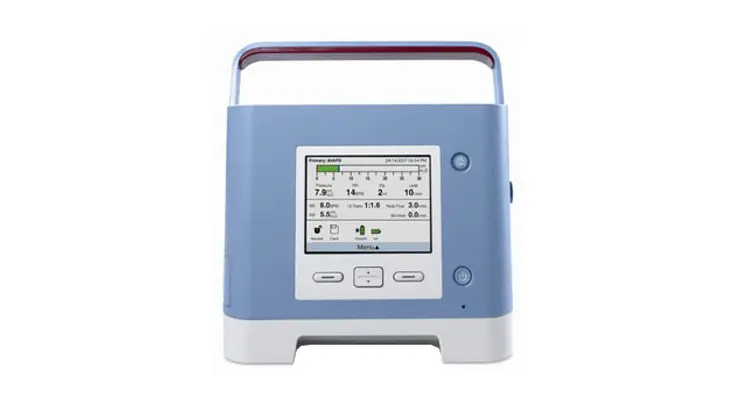
The Trilogy 100 is a versatile and easy-to-use portable ventilator designed for a wide range of adult and pediatric patients who need invasive or non-invasive ventilation at home. Its lightweight design and technology make it ideal for use in the home setting.
Top features of the Trilogy Evo Ventilator:
- Provides continuous respiratory support for up to 24 hours a day
- Portable design with internal, hot-swappable, and external batteries for extended mobility
- Pressure and volume control modes for personalized therapy
- AVAPS-AE mode with Auto EPAP and Auto Backup features for patient comfort and synchrony
- Digital Auto-Trak technology for automatic leak compensation and breath triggering
- Sensitive Auto-Trak setting for patients with minimal respiratory effort
- Connectivity with Care Orchestrator for remote monitoring and data management
Read the Trilogy 100 Ventilator manual.
Trilogy Ventilator Price
You’ll need a valid prescription from your provider (likely a pulmonologist) in order to get a Trilogy home ventilator. Generally, you’ll need to go through a home healthcare or durable medical equipment (DME) company like Apria or Lincare. These companies will typically send out a nurse or respiratory therapist to get the patient setup on the device and ensure the right settings are established from your physician’s order.
Additionally, these companies will be your support if you have any questions or concerns with the ventilator while in use. They can help you troubleshoot issues or send someone out to inspect the device.
Pricing - Trilogy Evo Ventilator
You can find refurbished or brand new models ranging from $5,000 - $13,000 online. Your insurance may cover some of this cost, so check with your health insurance company to determine your share. You may also be able to rent the Evo for a few hundred dollars monthly.
Pricing - Trilogy 100 Ventilator
There mainly refurbished models online ranging from $1,700 - $7,000. You can also rent one of these vents for a few hundred dollars per month. Your insurance may cover some of these costs, so check with your health insurance before purchasing.
Trilogy Ventilator Recalls
Over the past few years, Philips Respironics has experienced numerous issues with medical equipment, including their ventilators. Note that a recall means a correction needs to be made rather than the device being pulled off market. Here are some recalls that have impacted patients using Trilogy vents (dates are approximate):
Trilogy Evo
Date of recall: March 19, 2024
Philips Respironics recalled 90,905 Trilogy Evo continuous ventilators in the US because of a software-related issue that caused power malfunctions. As a Class I recall, it is the most serious type of recall by the FDA. A software update resolves the problem.
Date of recall: May 1, 2023
The Evo was recalled in 2023 by Philips Respironics after detecting dust and dirt from the environment in the air path of some devices. This buildup could block critical air vents in the device that could ultimately block airflow to the patient. A Philips-approved particulate filter is required to resolve the issue.
Trilogy 100 and 200
Date of recall: June 2021
The polyester-based polyurethane (PE-PUR) sound abatement foam installed into the Trilogy 100 and 200 home ventilators can degrade and release particles and toxic chemicals into the device's air pathway. This issue could potentially expose patients to harmful substances and interrupt airflow. To correct the issue, Philips had to collect all impacted devices to replace the faulty parts.
Date of recall: December 2022
Some "repaired" devices from the June 2021 recall may still experience issues with the replacement silicone foam, which could separate from the attached plastic backing and block the air inlet, potentially interrupting airflow to the patient.*Please note, this may not be an exhaustive list of recalls.
Trilogy Ventilator Alternative
The extensive recalls in the past few years with Philips Respironics equipment has made a lot of people uncomfortable with their ventilators and CPAP/BiPAP machines. Another brand to explore is ResMed’s Astral home ventilators. ResMed is a well-known and highly reliable respiratory medical device company. As an alternative to the Trilogy Evo and Trilogy 100, the ResMed Astral™ 100 and Astral 150 are user friendly, reliable, and trustworthy contenders.
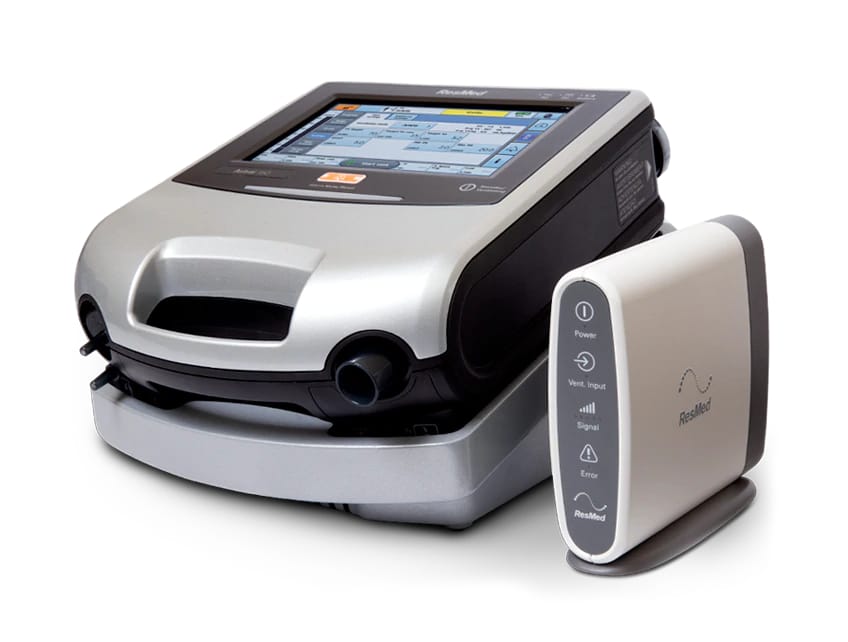
Are All Your Respiratory Needs Met?
For patients that use home ventilators in non-invasive modes like BiPAP or AVAPS, aerosol therapy also can play an important role in managing conditions like COPD, asthma, and other diseases.
TruNeb™ is a leader in the nebulizer space, prioritizing innovation and convenience. Our portable nebulizer features an ultra compact design, quiet operation, and durable construction – making breathing treatments less of a hassle and more of a relief. Bring your portable neb with you on the go or use it from the comfort of home.

